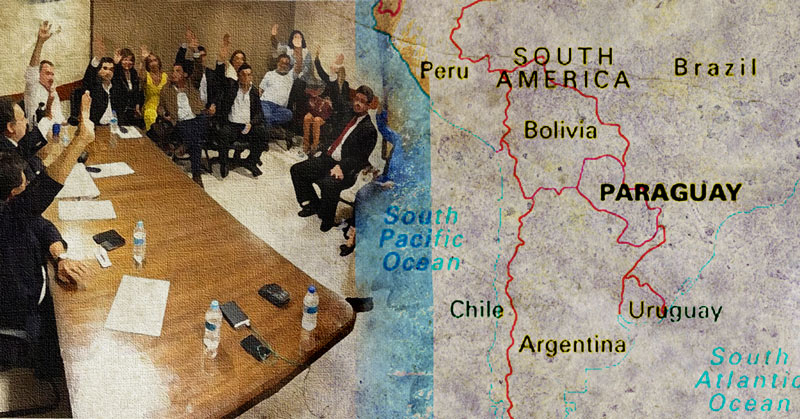Americans are hardly alone in strongly supporting term limits. All over the world, people who care about limited government also care about limited terms for officials wielding government power.
Especially the people of Paraguay, who remember all too well the dictatorship of General Alfredo Stroessner. He seized power in 1954, securing it with fraudulent elections and the arrest, torture and murder of thousands of political opponents, until being removed by a 1989 military coup.
After that ugly 35-year episode, strict term limits were established in the Paraguayan Constitution: one five-year term for the president — no re-election possible.
Fast-forward to the last few weeks, when the country’s Senate violated its own rules by holding a secret session — of which even the head of the Senate was unaware — and approved a constitutional amendment allowing re-election of the president. Under Paraguay’s constitution, amendments can be enacted by the House and Senate — without a vote of the people.
Before the House could vote, however, protests erupted against the deeply unpopular term limits change. (A recent poll showed 77 percent of Paraguayans opposed the amendment.) Angry crowds battled police on the streets of Asunción, the capital, after trashing and setting fires in the National Congress building. Meanwhile, police killed one demonstrator when they attacked the Liberal Party headquarters, prompting Pope Francis to urge dialogue in this 90 percent Roman Catholic country.
Yesterday, President Horacio Cartes announced he would not seek re-election in 2018, whether the constitution is changed or not.
The head of Cartes’s Colorado Party, which was associated with Stroessner decades ago, told Reuters that any change is now “practically impossible.”
This is Common Sense. I’m Paul Jacob.

